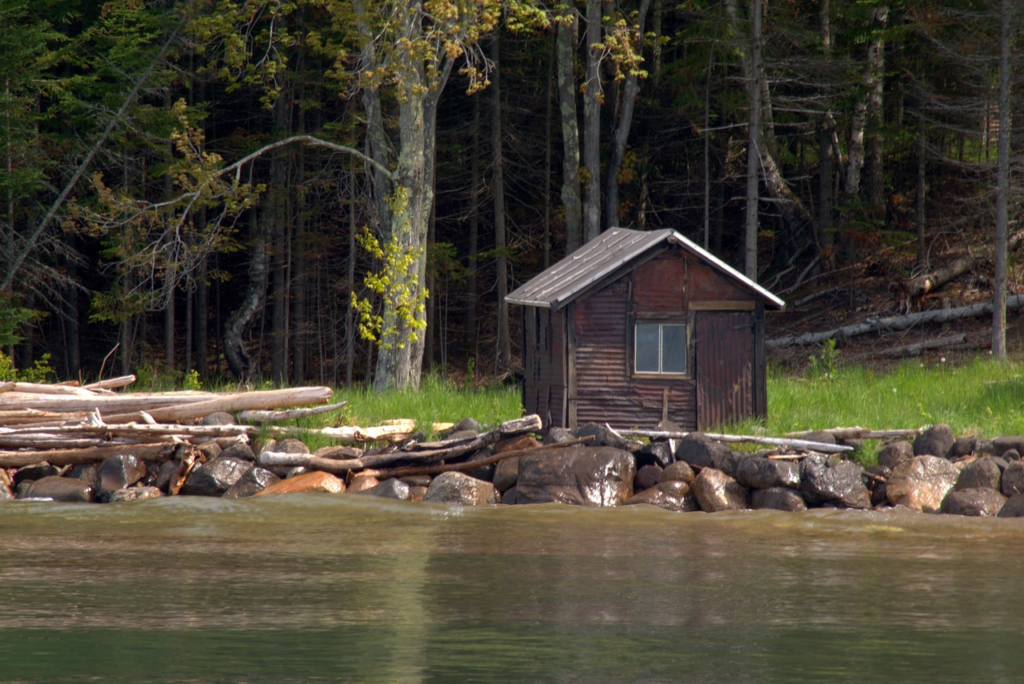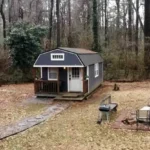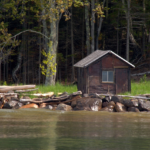An Introduction to living off the grid
Living off the grid means being self-sufficient and independent from the traditional power grid. This lifestyle involves relying on alternative sources of energy such as solar or wind power, and often involves living in a remote location. The concept of off-grid living can be attractive to those who seek to reduce their environmental impact, live a simpler life, or become more self-reliant.

This has become a popular lifestyle choice for many people in recent years and involves being self-sufficient and disconnected from the traditional power grid. It can be an attractive option for those seeking to reduce their carbon footprint, live a simpler life, or become more self-reliant. In this article, I will break down the basics of living off the grid for beginners and provide tips on how to get started.
Understanding the concept of living off the grid
Living off the grid involves being self-sufficient and disconnected from the traditional power grid. This means relying on alternative sources of energy such as solar or wind power, and often living in a remote location. Off-grid living can provide a sense of freedom and independence that is not available in traditional urban or suburban living. However, it also requires a significant amount of work and preparation.
Benefits of living off the grid
There are several benefits to living off the grid. Firstly, it can significantly reduce your environmental impact by using alternative sources of energy and reducing your reliance on fossil fuels. Secondly, it can provide a sense of freedom and independence that is not available in traditional urban or suburban living. Thirdly, it can be a more cost-effective way of living as you are not reliant on expensive utility bills or other city services.
Essential skills and knowledge for living off the grid
Living off the grid requires a certain set of skills and knowledge that are essential for survival. Firstly, it is important to have basic carpentry skills to be able to build and maintain your off-grid home. Secondly, knowledge of alternative energy sources such as solar or wind power is essential for generating electricity. Thirdly, basic gardening skills are necessary for growing your own food and sourcing essentials.
Finding the perfect location for off-grid living
Finding the perfect location for off-grid living is an important step in the process. It is important to find a place that is remote enough to be off the grid but still accessible to essential services such as medical care or grocery stores. Additionally, it is important to consider factors such as climate, water availability, and soil quality when selecting a location.
Setting up your off-grid home
Setting up your off-grid home is a significant undertaking that requires careful planning and preparation. The first step is to build or purchase a home that is designed for off-grid living. This may involve installing solar panels, a wind turbine, or other alternative energy sources. Additionally, it is important to have a reliable water source and a way to dispose of waste.
Managing energy and water supply
Managing your energy and water supply is an important aspect of off-grid living. This involves monitoring your energy usage and ensuring that you have enough power to meet your needs. It also involves managing your water supply and ensuring that you have enough water for drinking, cooking, and cleaning.
Growing your own food and sourcing essentials
Growing your own food and sourcing essentials is an important part of off-grid living. This involves gardening and raising livestock to provide food for yourself and your family. Additionally, it may involve hunting, fishing, or foraging for food. It is also important to have a stockpile of essential supplies such as medical equipment, first aid kits, and other necessities.
Tips for adjusting to off-grid living
Adjusting to off-grid living can be a significant challenge for those who are used to traditional urban or suburban living. Some tips for adjusting to off-grid living include embracing a simpler lifestyle, developing a daily routine, and maintaining a positive attitude. Additionally, it is important to be prepared for challenges such as power outages, water shortages, and other issues that may arise.
Challenges and drawbacks of living off the grid
Living off the grid is not without its challenges and drawbacks. Firstly, it requires a significant amount of work and preparation. Secondly, it can be difficult to find a suitable location that is both remote and accessible. Thirdly, it can be expensive to set up an off-grid home with alternative energy sources and other necessary equipment.
Conclusion and next steps for beginners
In conclusion, living off the grid can be an attractive lifestyle choice for those seeking to reduce their carbon footprint, live a simpler life, or become more self-reliant. However, it requires a significant amount of work and preparation. For beginners, the next steps involve researching potential locations, developing essential skills and knowledge, and carefully planning and preparing for the transition to off-grid living.
Are you considering living off the grid? Subscribe to our newsletter for more detailed advice
This couple found their new life on a small block and on a budget







